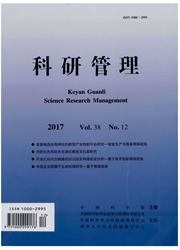

 中文摘要:
中文摘要:
随着创新对企业发展作用的日益明显以及在管理领域的不断延伸,企业全员创新受到广泛关注。但相关研究往往将创新主体人的要素视为“因变量”,而创新环境视为“自变量”,未能对全员创新的运行机理进行深入探讨,导致当前全员创新在实践中流于形式。为此,本文采用理论分析建立创新环境、个体创新、集体创新、全员创新与创新绩效等五个要素在内的概念模型,并通过对我国企业的问卷调查,进行数据收集与结构方程统计分析以验证相关的理论假设,以期为我国企业实施全员创新梳理复杂的逻辑关系并提供一个支撑的理论框架。
 英文摘要:
英文摘要:
With more and more importance of innovation in the development and management of organizations, more attentions are given to All - Involvement Innovation (AII) of a firm. However, the human side was always viewed as "a dependent variable" of innovation and the environment as "a independent variable" in the most relevant studies. And few attentions are paid to the functional mechanism of AII, which leads to the AII failure in companies. Therefore, a conceptual model including five factors, which are Innovative Environment (IE), Individual Innovation (II), Collective Innovation (CI), AII, and Innovative Perforrnance (IP), were set up. Further questionnaire survey was done; data are collected and analyzed statistically using the Structural Equation Model (SEM) for testing the theoretical hypotheses. The conclusion were drawn that AII cannot be simply seen as the outcomes of the IE. It is the result of the interactions of II, CI, and IE. AII decided on not only IP but also IE. At the same time, the outcomes from the positive study also test such perspectives that IE influences IP indirectly by motivating II and CI. This result was different with the general view of "IE decides directly on IP".
 同期刊论文项目
同期刊论文项目
 同项目期刊论文
同项目期刊论文
 期刊信息
期刊信息
